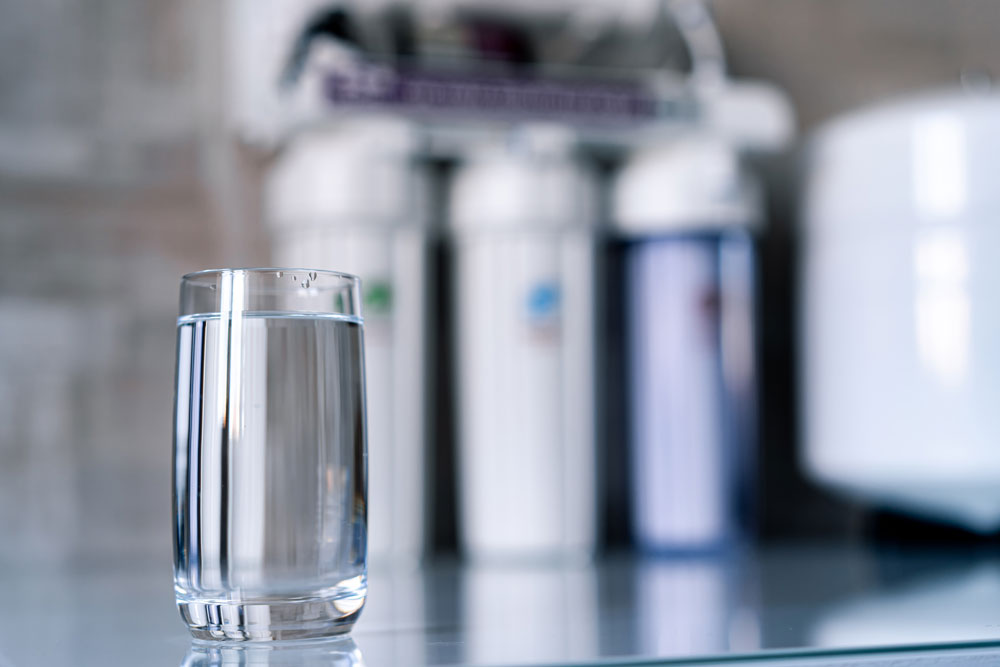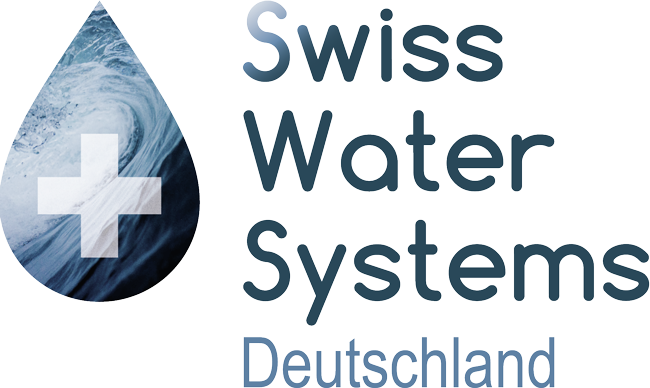Your benefit …
Osmosis systems
How useful is a reverse osmosis system?
What exactly is osmosis, and what is a reverse osmosis system? How does it work? Is reverse osmosis water harmful to the human body? What should you consider when choosing, installing, and using a reverse osmosis system? Unfortunately, answers to these questions are often based on partial knowledge. That’s why in this post, we’ll take a closer look at the basics of reverse osmosis systems and reverse osmosis water, so you can form a well-informed opinion. If you’re new to the topic of water filters, we recommend starting with our blog post on the general benefits and usefulness of water filters.
What is meant by osmosis?
Osmosis refers to the one-way diffusion of a substance through a so-called semipermeable membrane. This semi-permeable membrane allows only certain substances to pass through, functioning as a sort of filtration mechanism. Osmosis occurs wherever liquids with different concentrations of particles are present. As long as there is a difference in the concentration of dissolved particles on either side of the membrane, osmotic pressure is created. The fluids move toward equalizing the pressure until the ratio of water molecules to dissolved particles is balanced on both sides of the membrane.
What are reverse osmosis systems and how do they work?
Reverse osmosis systems are complex water filtration systems based on the physical process of reverse osmosis. They were developed by NASA in the early 1960s to solve the problem of water purification in space. As the name ‘reverse osmosis’ suggests, this process reverses the natural flow of osmosis and uses it for water filtration. Simply put, the pressure of the water being purified is artificially increased, causing it to pass through a semipermeable membrane to equalize the pressure. Since this membrane only allows water molecules to pass through, pure water collects on the other side and can be collected and used. The contaminated water that was used as the input for the purification process is discarded as wastewater. To prevent the concentration of contaminants on the input side from becoming excessive, it’s important that the reverse osmosis system has a proper flushing mechanism, as the filtration efficiency would otherwise significantly decrease over time.
What’s the advantage of a reverse osmosis system?
Compared to other filtration systems that often only remove ‘coarse’ contaminants from water, a reverse osmosis system reliably eliminates all types of impurities — from visible particles and microparticles to hormone and medication residues. The result is absolutely pure water that you can use for a variety of purposes. The original water quality and level of contamination don’t affect the reverse osmosis process. In theory, such a system can transform any water-containing liquid into pure drinking water.
Don’t the minerals get stripped out of the water?
Yes and no. It’s true that reverse osmosis water typically contains only traces of the minerals that were originally dissolved in it. However, this isn’t a negative feature; rather, it’s a positive one. Water isn’t a food source. Providing your body with minerals isn’t the job of your drinking water. Instead, water acts as a solvent and transport medium for your body, and it performs this crucial function most efficiently when it’s unsaturated—meaning free of dissolved minerals. So, reverse osmosis water is not only safe for the human body but can even have positive effects on your health.
Why are reverse osmosis systems so expensive?
Such systems are relatively costly compared to other water filtration solutions due to their complexity. They typically consist of a range of components that work together in an extensive filtration and purification process. Additionally, it’s important that only high-quality materials — such as stainless steel components — are used to achieve the highest level of purity. If you’re someone who values quality, is conscious about your consumption, and pays attention to what you’re putting into your body, a reverse osmosis system might be the right water filter for you. Our advice: don’t skimp on the wrong things! The extensive filtration and purification process doesn’t end with the system; it ends when you’re drinking the ideal water. Consider the purchase cost as an investment in your long-term well-being — your body and health will thank you.

If you have any further questions about water or are interested in a premium water filtration system, our experts are always here to help and provide advice! Simply send us an email at kontakt@wasser-filter-system.de/en or conveniently use the contact form on our website.


